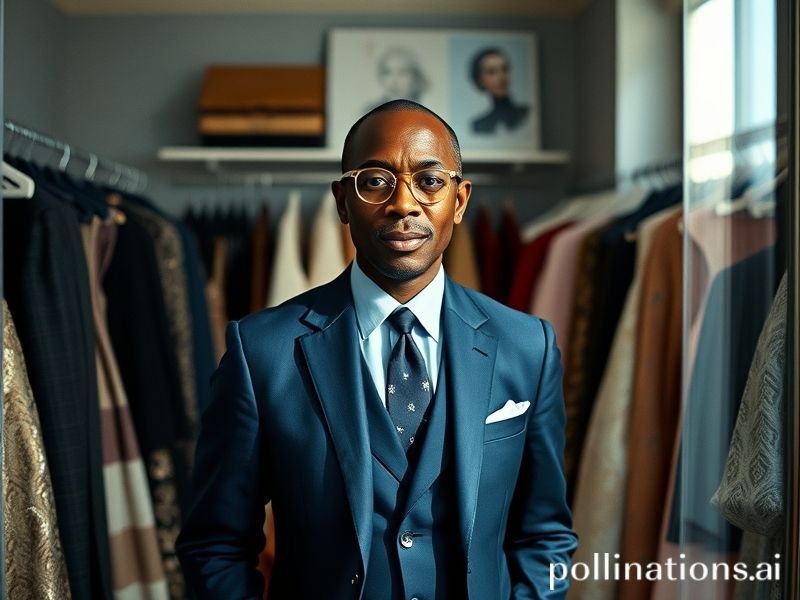Edward Enninful’s Final Bow: How One Ghanaian-British Editor Redrew the Empire of Aspiration
When Edward Enninful closed the September 2023 issue of British Vogue with a quiet, almost surgical finality, the international fashion establishment did what it always does when confronted by an ending: it threw a lavish wake, posted it on Instagram, and wondered who would inherit the handbag allowance. From the glass-and-Dior-tiled offices of Condé Nast in Manhattan to the sweat-soaked studios of Dakar—where tailors stitch knock-offs of whatever Anna Wintour just sneezed at—Enninful’s exit felt less like a retirement and more like a geopolitical realignment. After all, the Ghanaian-British editor hadn’t merely rearranged frocks; he had redrawn the cartography of aspiration for anyone whose passport wasn’t embossed with a European crest.
The global implications were immediate. In Lagos, wholesalers fretted that the price of imported Vogue back issues—used by local designers as mood-board scripture—would crater. Meanwhile, in Seoul’s Gangnam district, AI start-ups fed six years of Enninful covers into neural nets, hoping to reverse-engineer a formula for “diverse but still luxury.” (Spoiler: the algorithm kept returning images of Adut Akech holding a Birkin, captioned “world peace.”) From Mexico City to Mumbai, the consensus was that a certain post-colonial swagger had left the building, taking with it the polite fiction that fashion was ever only about clothes.
Born in Ghana, raised in Ladbroke Grove, Enninful understood that glamour is just soft power wearing better shoes. Appointed in 2017, he turned a 105-year-old magazine—once so white it practically glowed in the dark—into a rotating UN Security Council of melanin. He put Brexit on pause by making Rihanna a cover queen, reminded India it still mattered by draping Priyanka Chopra Jonas in sequins, and let Sudanese-Australian model Adut Akech reenact Botticelli in a refugee camp couture gown. The result: circulation up, advertisers queasy, racists apoplectic. Somewhere in Paris, a former Chloé intern choked on his pastis, muttering that “global” used to mean “a villa in Tuscany.”
Yet the cynic’s joy lies in unintended consequences. Enninful’s inclusivity crusade coincided neatly with luxury conglomerates discovering that “diversity” is simply another emerging market. LVMH didn’t pivot to Africa out of moral epiphany; it noticed the continent’s luxury spend growing faster than a Balenciaga knockoff in Shenzhen. When Vogue featured Hijabi model Halima Aden in a Nike hijab, the stock price of polyester athletic modesty wear ticked up in Riyadh. Even the Taliban, ever fashion-forward, reportedly studied the shoot for tips on controlling the female silhouette—proof that visibility is a double-edged stiletto.
The broader significance? Enninful proved that cultural capital can be weaponized, monetized, and, eventually, gentrified. His departure now hands the keys to Chioma Nnadi, whose mixed Nigerian-Swiss heritage suggests Condé Nast’s algorithm has finally perfected the “global but still palatable” formula. Expect a fresh round of earnest think-pieces titled “The New Vogue: Diaspora Chic,” followed by a 40-percent price hike on subscription renewals. Somewhere in Accra, a seamstress named Ama will still sew knock-offs for pennies, the real economy humming beneath the gloss.
And so the carousel spins. Enninful will decamp to a vague “global advisory” role—industry speak for “we pay you to stay photogenic at parties”—while the rest of us scroll past the next curated rebellion. Because if history teaches anything, it’s that revolutions look fabulous in couture right up until the invoice arrives. In the end, the world remains a catwalk, and we’re all just trying not to fall off in last season’s shoes.







